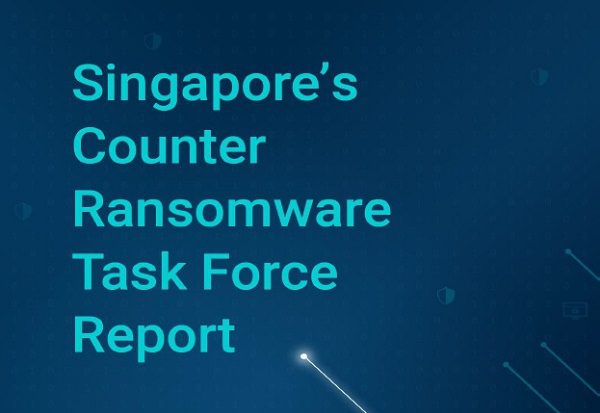The ransomware threat has grown significantly in scale and impact and has become an urgent problem for all digitally connected countries, including Singapore. It is also inherently an international problem, as attacks are conducted from across borders, and jurisdictional lines are leveraged to launder money and evade justice.
The Counter-Ransomware Task Force (CRTF) was commissioned to convene Government agencies across relevant domains, capabilities, and operational plans to strengthen Singapore’s counter-ransomware efforts and put Singapore in a better position to push for international action against the global ransomware threat. Both domestic and international efforts are mutually reinforcing, and one cannot be effective without the other. The CRTF comprises senior representatives from the Cyber Security Agency, Government Technology Agency, Infocomm Media Development Authority, Ministry of Communications and Information, Ministry of Defence, Ministry of Home Affairs, Monetary Authority of Singapore and Singapore Police Force, as well as support from the Attorney-General’s Chambers.
The CRTF’s findings and recommendations are intended as a blueprint to guide the Government and respective agencies’ efforts to secure Singapore from ransomware attacks.
Between January and September 2022, the CRTF met six times and achieved several outcomes. First, it developed a consolidated model of the ransomware kill chain to facilitate a common understanding among agencies of the stages of a ransomware attack, as well as the required actions to prevent and mitigate the attack at each stage. Second, the CRTF reviewed Singapore’s national position on ransom payments to ransomware attackers to determine if the current advice remained relevant amidst the growing ransomware threat. Third, the CRTF has recommended the policies, operational plans and capabilities the Government should consider, to contribute to international efforts to stem the global ransomware problem, and to secure Singapore from ransomware attacks. These recommendations will be taken up by the relevant Government agencies for further study and implementation.


